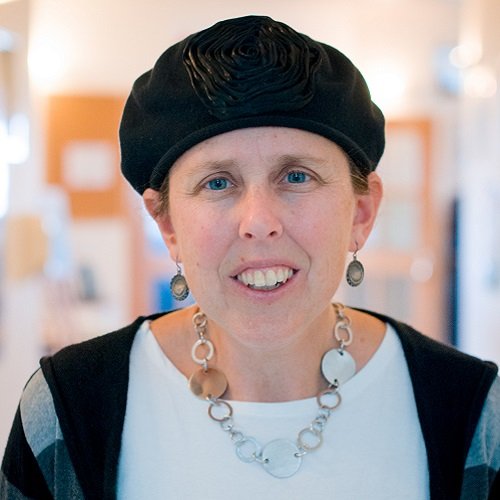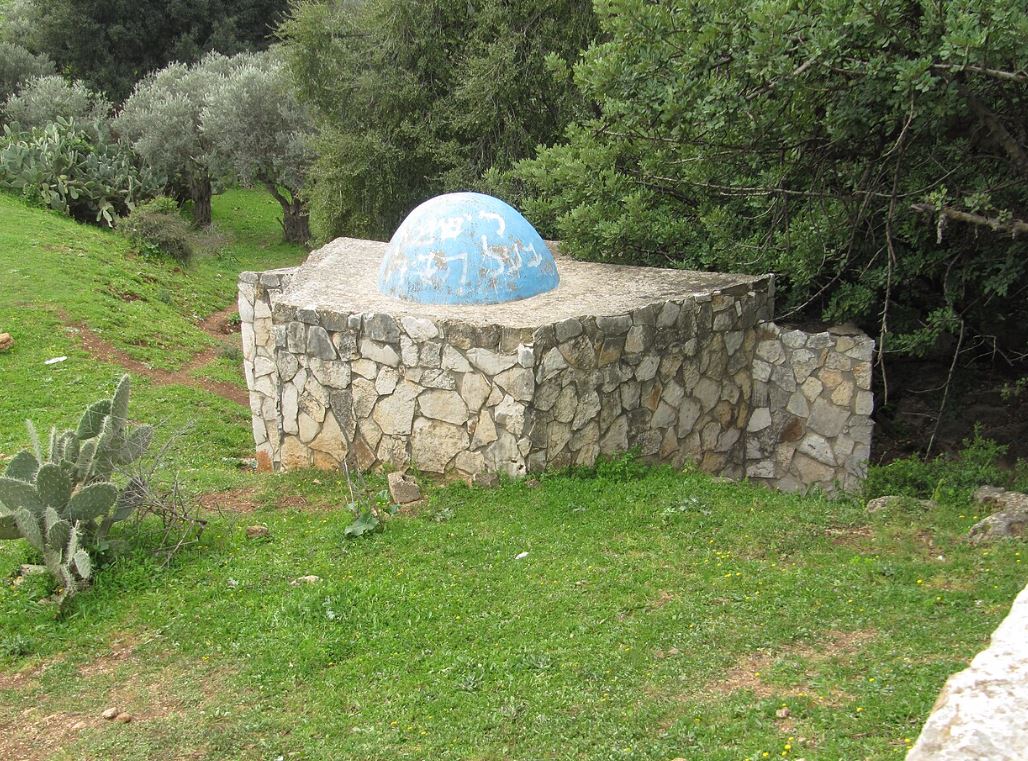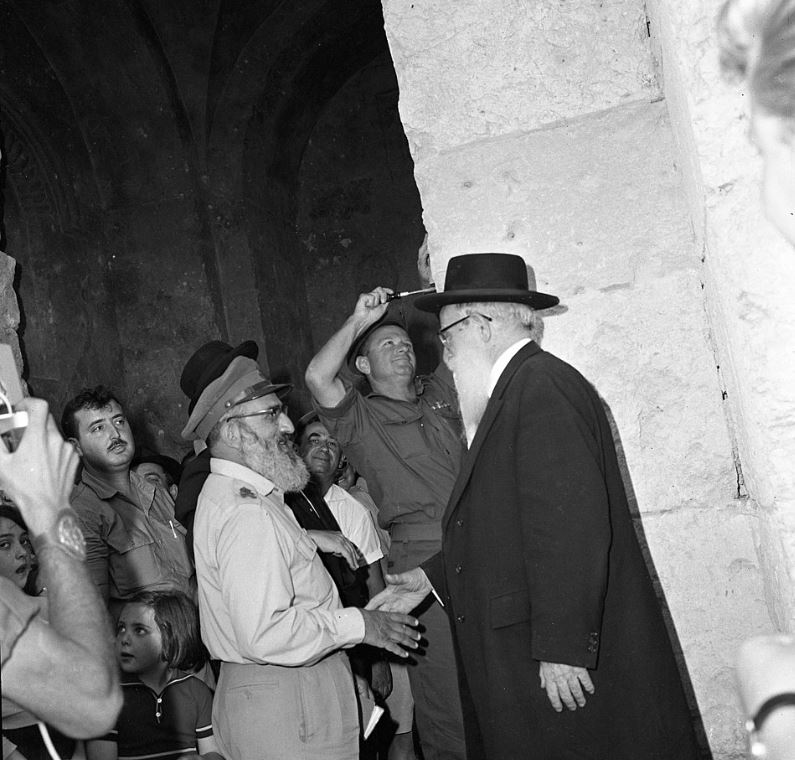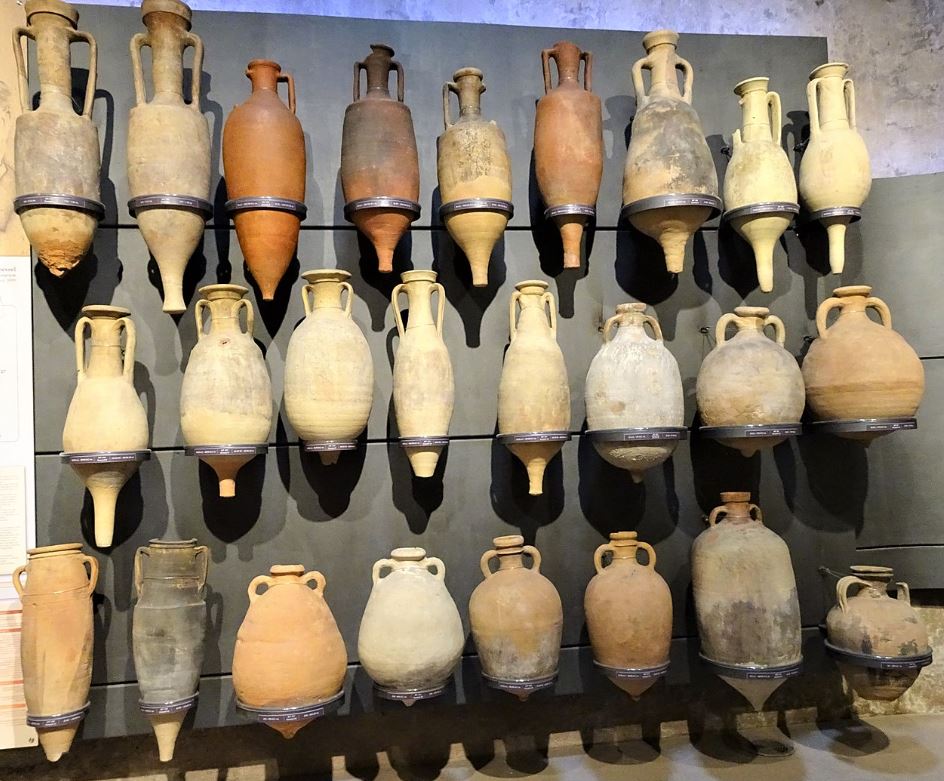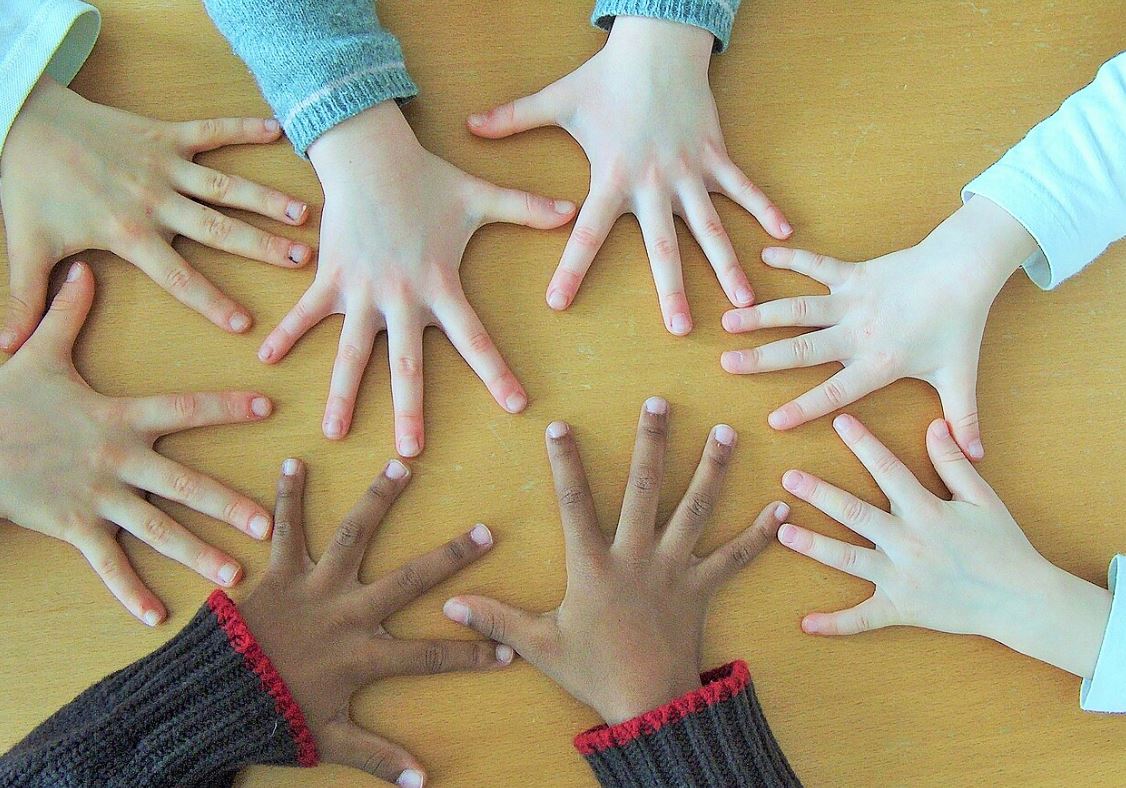Some people do not do laundry on chol hamoed. Therefore, after Simchat Torah, along with all the other things that were pushed off till “after the holidays,” there are large piles of laundry. But at least (we hope) the clothes are not blood-stained. In Zevachim daf 38b,one of the issues concerning the blood of sacrifices is כיבוס, laundering. This is referring to a principle discussed in the eleventh chapter of Zevachim:
“In the case of the blood of a sin offering that was sprayed on a garment, that garment requires laundering” (Mishnah Zevachim 11:1)
This law is derived from a verse in the book of VaYikra:
“Anything that touches its flesh shall become holy; and if any of its blood is spattered upon a garment, you shall wash the bespattered part in the sacred precinct.” (VaYikra 6:20)
The blood of the offering remains holy, even when it spills onto a garment. Therefore washing needs to stay in the holy place, so that the blood is not taken away from the Temple. This is in contrast to what we usually see as the purpose of laundering clothes in the Torah – to take away impurity or dirt. Here we want to retain the blood, usually we want to cleanse the stain.
In the Torah, laundry is usually done to cleanse the clothes of something impure, whether it is leprosy (VaYikra 14:8) or various bodily fluids (VaYikra 15:7). It is also done to purify the kohen who becomes impure from preparing the red heifer (Bamidbar 19:7).
Laundering clothes is also part of the preparation for momentous events like the giving of the Torah:
“And God said to Moses, go to the people and warn them to stay pure today and tomorrow. Let them wash their clothes.” (Shemot 19:10)
Ezra the Scribe decided that preparing for Shabbat similarly required doing laundry and decreed that it should be done on Thursdays:
“Ezra instituted ten ordinances: that communities read the Torah on Shabbat in the afternoon; and they also read the Torah on every Monday and Thursday; and the courts convene and judge every Monday and Thursday; and one does laundry on Thursday;” (Bava Kamma 82a)
Washing clothes can be a metaphor for atonement as we see (in a negative way) in Jeremiah:
“Though you wash with natron נתר
And use much lye בורית ,
Your guilt is ingrained before Me
—declares my Sovereign God.” (Jeremiah 2:22)
Or more positively in Tehillim:
“Purge me with hyssop till I am pure;
wash me till I am whiter than snow.” (Tehillim 51:9)
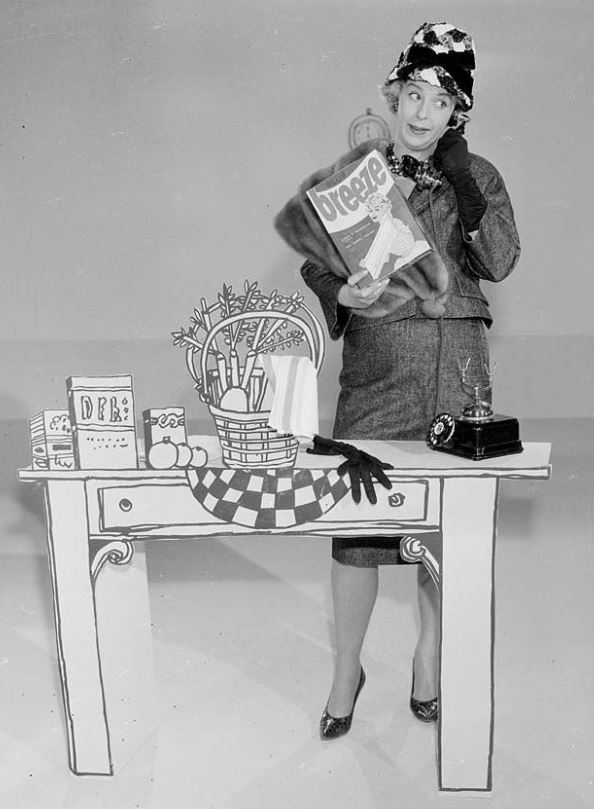
Detergent options in ancient times did not include this product
Alexandra Studio, CC BY 2.0 <https://creativecommons.org/licenses/by/2.0>, via Wikimedia Commons
Laundry was a very labor-intensive job that required a lot of water, some kind of cleansing agent, space and time. If it was done at home, it was usually women’s work and was done in the courtyard and not at the river because of modesty:
“Partners may prevent each other [from using their courtyard] for any purpose except for laundry. It is not the way of Jewish women to be degraded over laundry [by laundering their clothing in a public area.]” (Bava Batra 57b)
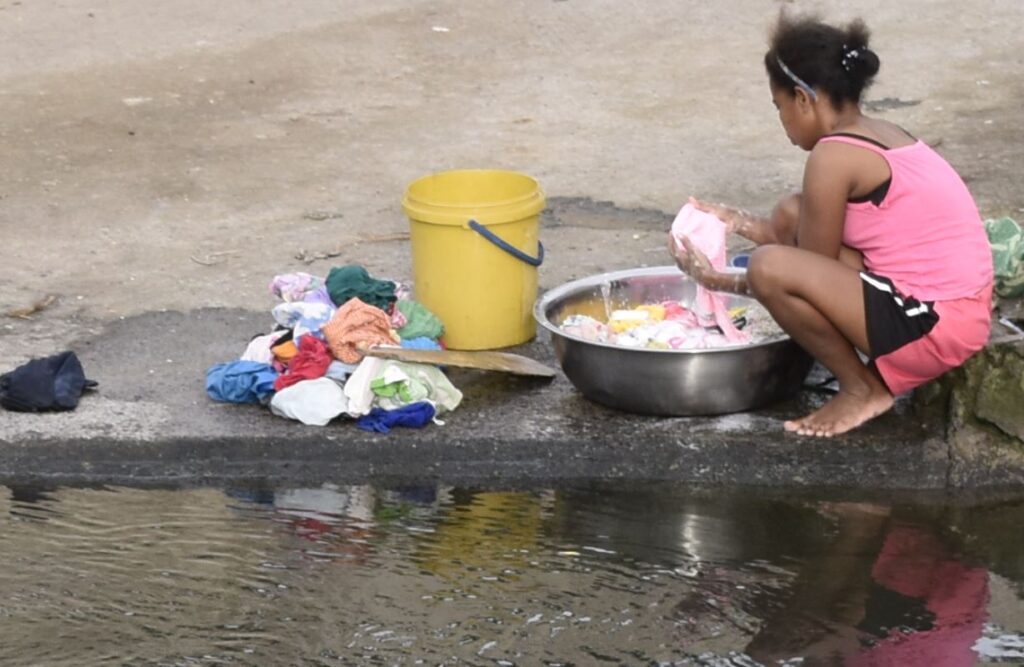
Woman doing laundry in the Philippines 2015
MarvinBikolano, CC BY-SA 4.0, via Wikimedia Commons, CC BY-SA 4.0 <https://creativecommons.org/licenses/by-sa/4.0>, via Wikimedia Commons
However there were also public areas allotted for laundering, usually where there was a river or a water source. One of the fascinating ones is mentioned in connection with the prophet Isaiah who goes to meet the king at the laundry field:
“Then said the Lord to Isaiah, Go out now to meet Aĥaz, you, and She᾽ar-yashuv your son, at the end of the aqueduct of the upper pool in the highway of the washers’ field” (Isaiah 7:3)
Scholars are unsure where this is but one suggestion is that it is at the northeast corner of today’s Old City, near the Lion’s Gate. In Second Temple times there were pools here called the Sheep Pools (see here) and Dan Bahat suggests that they are built on the remains of the earlier pool.
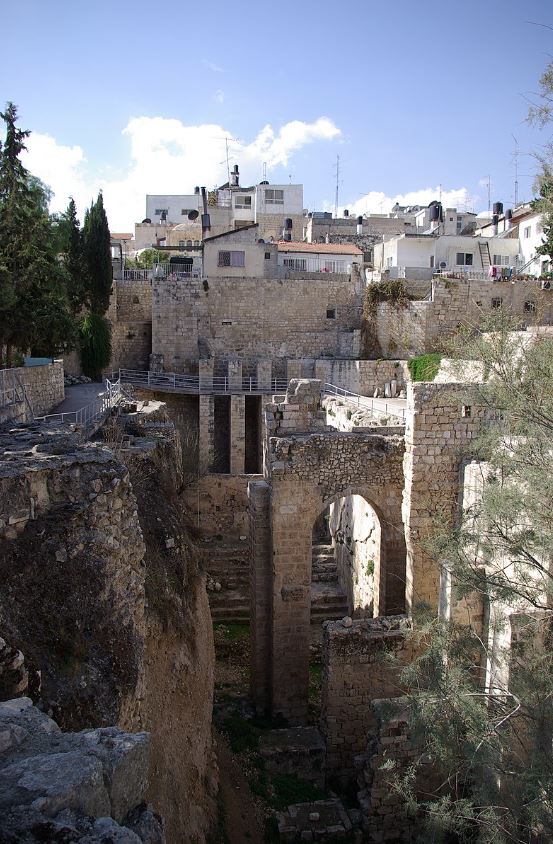
Ruins of the Sheep Pools
Berthold Werner, Public domain, via Wikimedia Commons
Sometimes laundry was given over to a professional launderer, a כובס. This was not a particularly high-status or well-paying job, despite its usefulness. That is why it seems strange that we have a number of stories in the Gemara that star “the launderer” ההוא כובס. These are not all about the same person – the stories range from the time of Rabban Gamliel to Rabbi Judah the Prince – but they share certain features. The launderer is an unnamed outsider who shows up at a critical moment and moves the narrative forward. He is the one who comes to the Rabbis to tell them of Rabban Gamliel’s return:
“They said: Who will go and inform the Sages? This launderer said to them: I will go.” (Berachot 28a)
He remembers Rebbe’s forgotten Torah:
“There was a certain launderer who would hear Rebbe when he was studying those halakhot. Rabbi Ḥiyya went and learned from the launderer and he came and restored them before Rebbe.” (Nedarim 41a)
He saves Rabbi Yishmael from an unwanted vow:
“When a certain launderer saw that the Sages were troubled [because Rabbi Yishmael caused them difficulty in successfully dissolving his vow], he hit Rabbi Yishmael with a launderer’s tool that he had in his hand. Rabbi Yishmael said: Had I known that the launderer would hit me due to my vow I would not have vowed, and he dissolved it.” (Nedarim 23a)
He even denounces the powerful Rabbi Elazar beRabbi Shimon but then he himself is caught:
“One day, a certain laundryman met Rabbi Elazar, son of Rabbi Shimon, and called him vinegar, son of wine. Rabbi Elazar, son of Rabbi Shimon, said: From the fact that this man acted so insolently, one can conclude that he is a wicked person. He told the authorities: Arrest that man. They arrested him” (Bava Metzia 83b)
The Maharal (in the Gemara in Bava Metzia) suggests that the launderer is a symbol for the repentant sinner, someone who was dirty and has been cleansed. Assaf ben Zion (Assif 2024) writes that the figure of the launderer is an archetype of the Am HaAretz, the unlearned man. He is not part of the world of the Rabbis and that is why he is not necessarily righteous or accepted. However, as an outsider he can point out problems and show the way, so that the Rabbis can then move forward and solve the problem.
So be careful where you air your dirty laundry, but maybe take advice from the launderer.
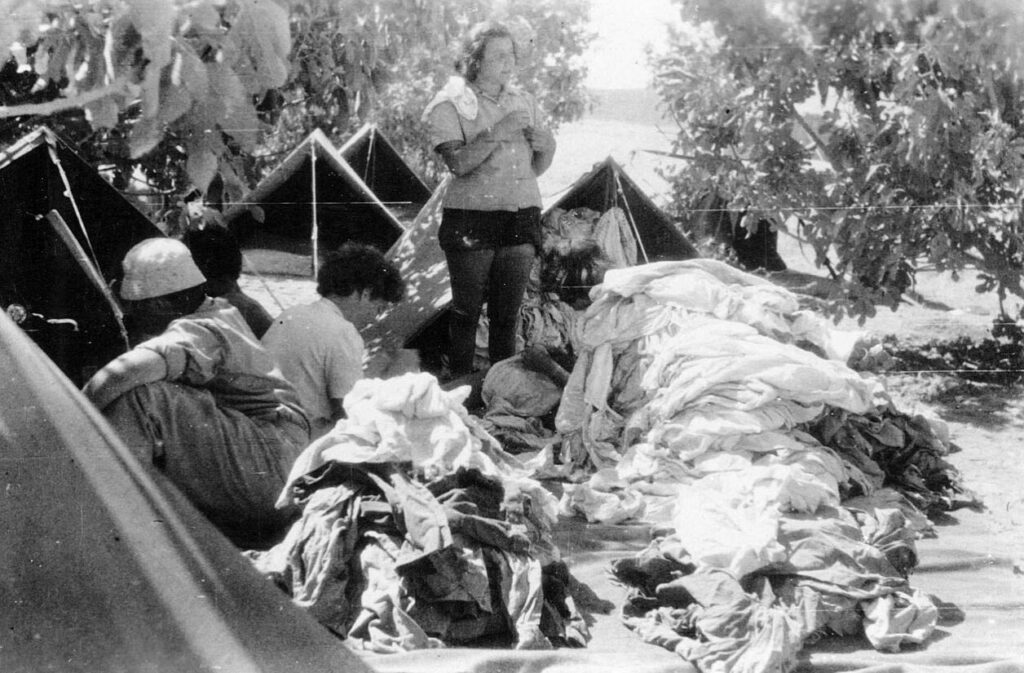
Laundry being done by the women of the Palmach
עברית: אין מידע, Public domain, via Wikimedia Commons


